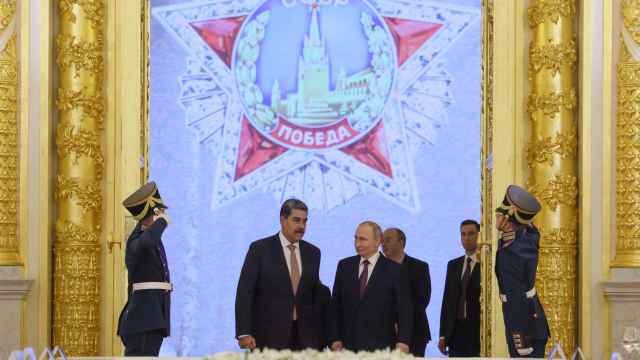This month, the International Energy Agency will publish its annual report, the internationally definitive “World Energy Outlook,” which will confirm that we are not on the right track to reduce global warming. If the current trend in energy production continues, the Earth’s average temperature will be more than 2 degrees Celsius higher in 2100 than it was in 1990, irreversibly harming the planet and conditions for human life.
Other, more immediate crises are occupying the world’s attention almost completely, distracting governments and citizens alike from the energy challenges that are still before us. In the United States, there has been no energy debate at the federal level for a long time. The European Union is in the eye of a financial hurricane, and the emerging countries want to maintain rapid economic growth in order to lift millions out of poverty. In this context, the next meeting of the United Nations Framework Convention on Climate Change, set for the end of November in Durban, South Africa, is passing totally unnoticed.
But energy is fundamental for humanity — not only because of its potentially negative externalities, but also given its economic relevance. Western countries spend from 8 percent to 10 percent of their gross domestic product on energy, and developing countries spend double or triple that amount. For this reason, we need a system to govern energy.
Owing mainly to its environmentally negative externalities, an unregulated energy market is not a useful governing mechanism because it is unable to internalize the environmental costs. It has been calculated that the most contaminating energy sources would have to pay a 70 percent tax to reflect their negative externalities.
A substantial lack of information in this field is another reason why the free market does not work. Often, as with the properties of a gas reserve, for example, information is technically difficult to obtain. In addition, governments consider natural resources to be strategic and do not release information about them. Finally, time frames related to energy are usually long: centuries for environmental effects or decades for investments to pay off. Thus, energy must be governed through a system of cooperation and regulation.
That will be complicated, of course. Managing energy requires taking into account technical, political and economic dimensions simultaneously. Energy exploration and production require many different disciplines and technologies — eolic (wind), photovoltaic, nuclear, coal, etc. Something similar exists in the political sphere, where industrial and economic sectors are organized but divided. And the need for international coordination poses an additional difficulty.
The energy sector exemplifies the inadequacy of our multilateral institutions. Energy policy is national, but the sector’s externalities are global. A radioactive leak, the rupture of an undersea oil well and, above all, CO2 emissions do not threaten just one country. At the same time, however, energy’s benefits adhere to specific agents — be they consumers, producers or sellers. This imbalance creates a clear incentive for free riders: They benefit, while the rest of us pay.
Moreover, global governance is necessary because energy supply and demand around the world are disconnected. Few countries have a neutral energy balance. Oil, the world’s main source of energy, is indicative in this regard. The Middle East has a 266 percent commercial surplus of oil, and the United States has a 65 percent deficit. This geographical imbalance requires an ordered system of trade, clear regulations and a well-structured global market. Today, however, opaque bilateral agreements abound, and very different environmental requirements and contradictory subsidies coexist.
As a result, our global energy institutions are woefully inadequate. The International Energy Agency admits only countries from the Organization for Economic Cooperation and Development, which excludes China, the largest energy consumer. The intergovernmental Energy Charter Treaty, which obliges signatories to apply impartial market rules to energy products and services, has not been signed by the United States, the world’s second-largest energy consumer, or ratified by Russia, the world’s largest oil producer. World Trade Organization agreements apply to energy only tangentially because energy is considered an exhaustible natural resource and, thus, is in many cases exempt from the rules.
Moreover, non-Western countries — which include big consumers like China and India, and the largest producers (the Gulf states and Russia) — do not trust the institutional system created mainly by the West. The emerging countries rightly argue that the West is responsible for today’s climate-change problem. From the Industrial Revolution until very recently, the West’s development was free of any environmental restrictions, and the emerging countries believe that they should not have to bear the adjustment cost. Likewise, producing countries oppose giving up one of the few bases of power they have.
The solution must include a new institution. Perhaps, for a start, it would be a good idea for the world’s largest emitters to negotiate through the Group of 20, or something like it, for energy. Later, negotiations could be opened up to all states, placing them under the ambit of the UN Framework Convention on Climate Change, for example.
The focus of the negotiations must be comprehensive, resulting in emission limits and financial and technological support for energy sources that are less harmful to the environment. Limiting emissions would impose costs disproportionately on oil-exporting countries and on consumers in emerging countries, where technology is less sophisticated.
At the UN Framework Convention on Climate Change’s meeting in Durban, all countries — developed, emerging and those with or without natural resources — must join together to ensure that when the other crises currently roiling the world are finally resolved, the biggest crisis of all does not catch us off guard.
Javier Solana, former high representative for foreign affairs and common security policy of the European Union and former secretary general of NATO, is a distinguished senior fellow at the Brookings Institution and president of the ESADEgeo Center. Angel Saz-Carranza is coordinator of ESADE Center for Global Economy and Geopolitics in Spain. © Project Syndicate
A Message from The Moscow Times:
Dear readers,
We are facing unprecedented challenges. Russia's Prosecutor General's Office has designated The Moscow Times as an "undesirable" organization, criminalizing our work and putting our staff at risk of prosecution. This follows our earlier unjust labeling as a "foreign agent."
These actions are direct attempts to silence independent journalism in Russia. The authorities claim our work "discredits the decisions of the Russian leadership." We see things differently: we strive to provide accurate, unbiased reporting on Russia.
We, the journalists of The Moscow Times, refuse to be silenced. But to continue our work, we need your help.
Your support, no matter how small, makes a world of difference. If you can, please support us monthly starting from just $2. It's quick to set up, and every contribution makes a significant impact.
By supporting The Moscow Times, you're defending open, independent journalism in the face of repression. Thank you for standing with us.
Remind me later.





